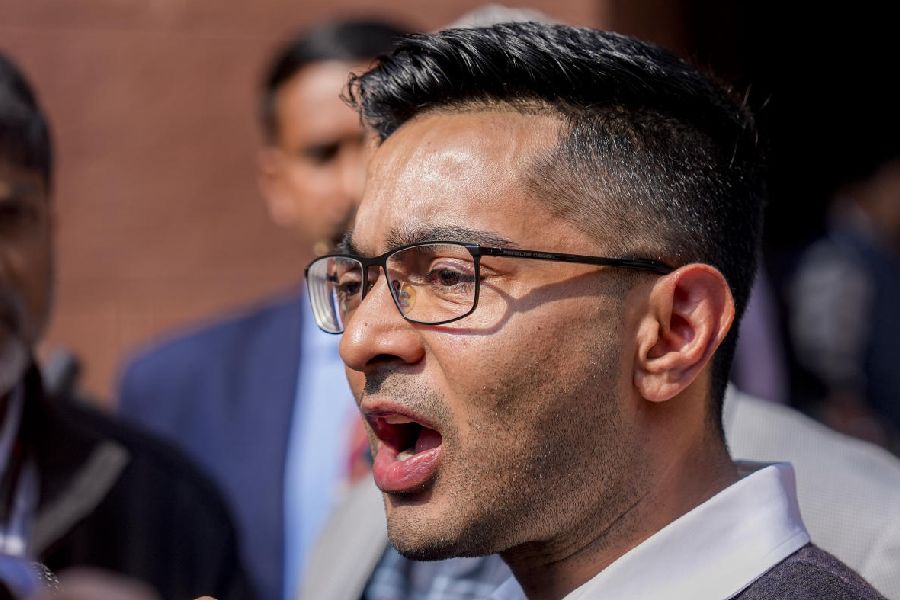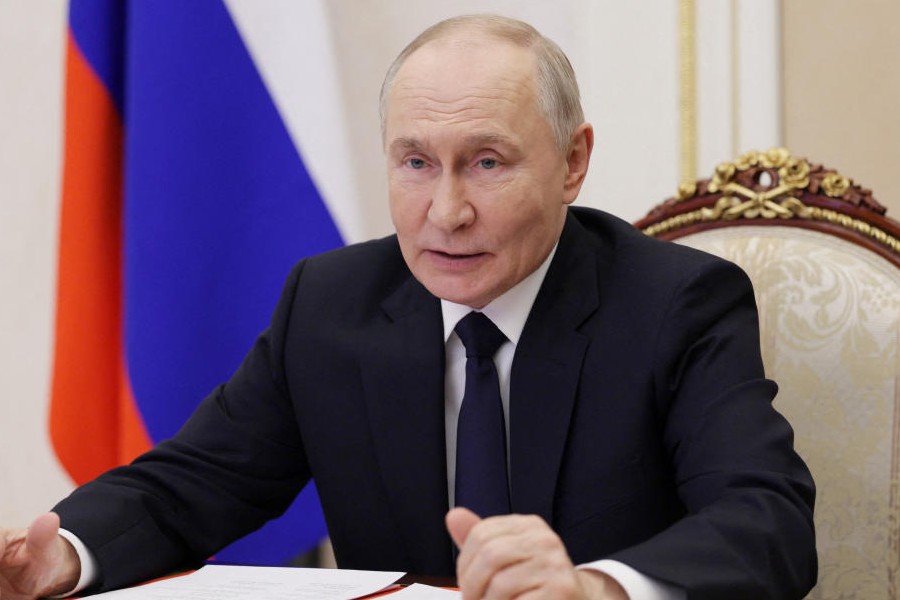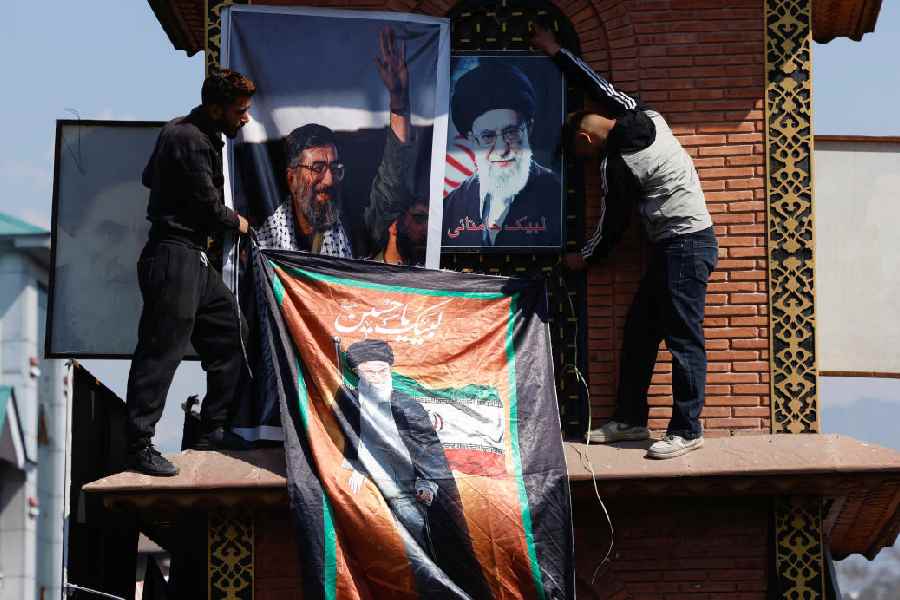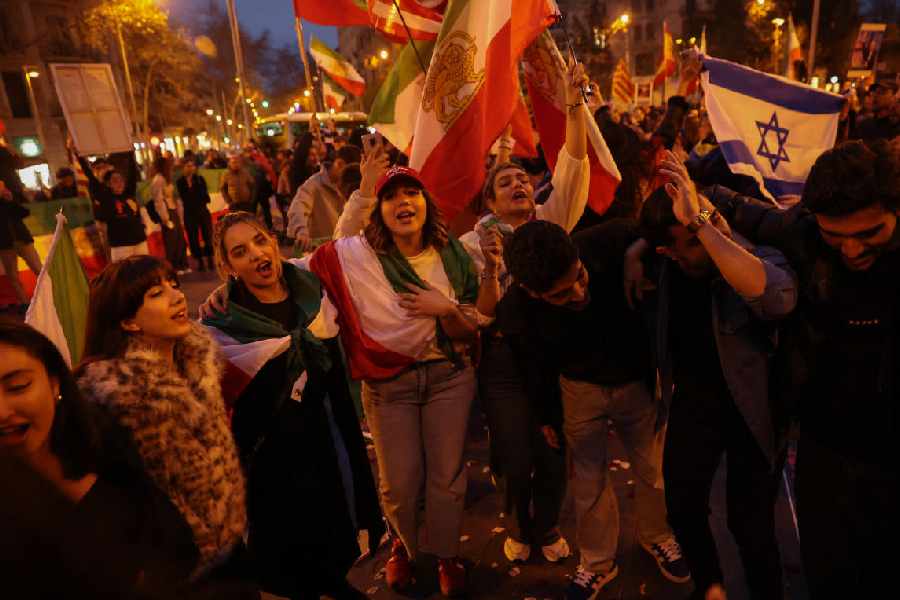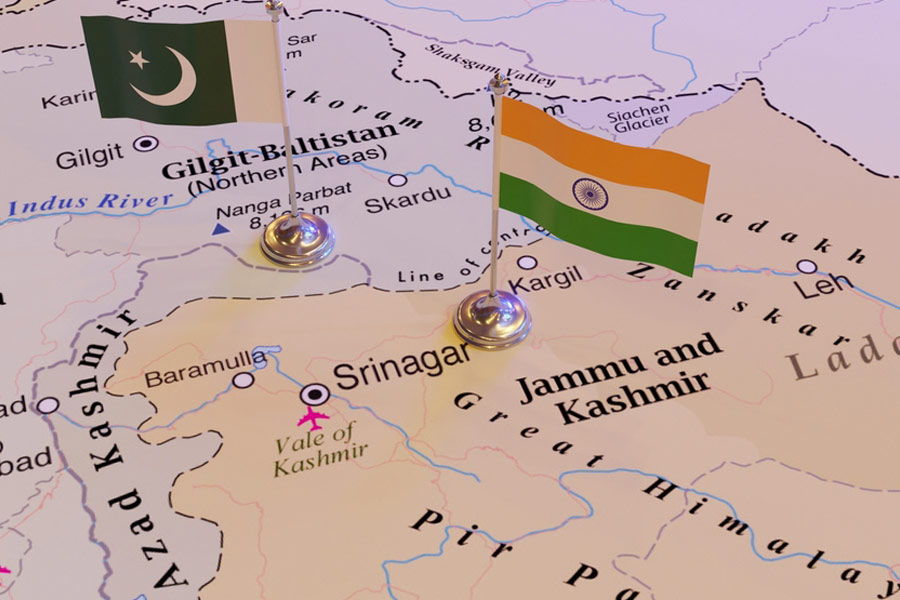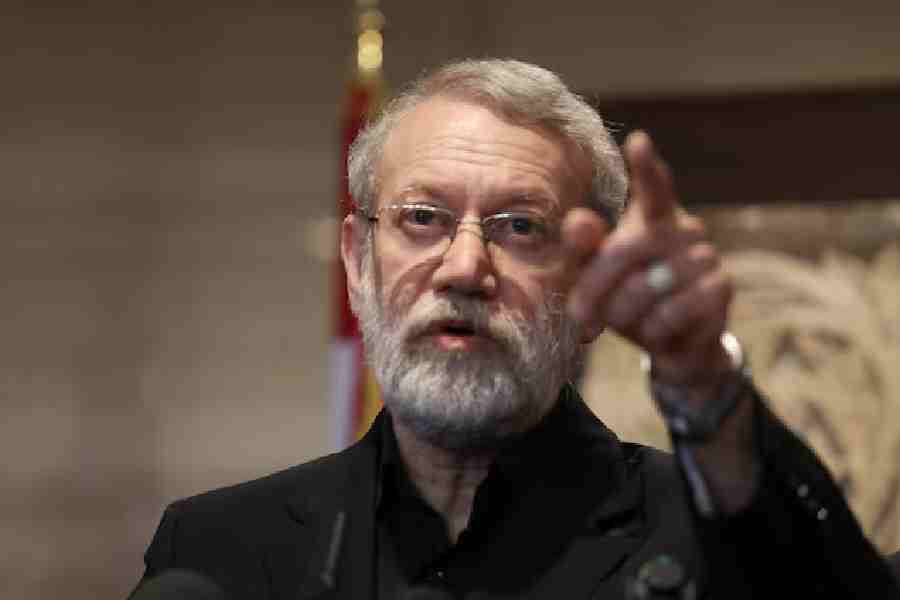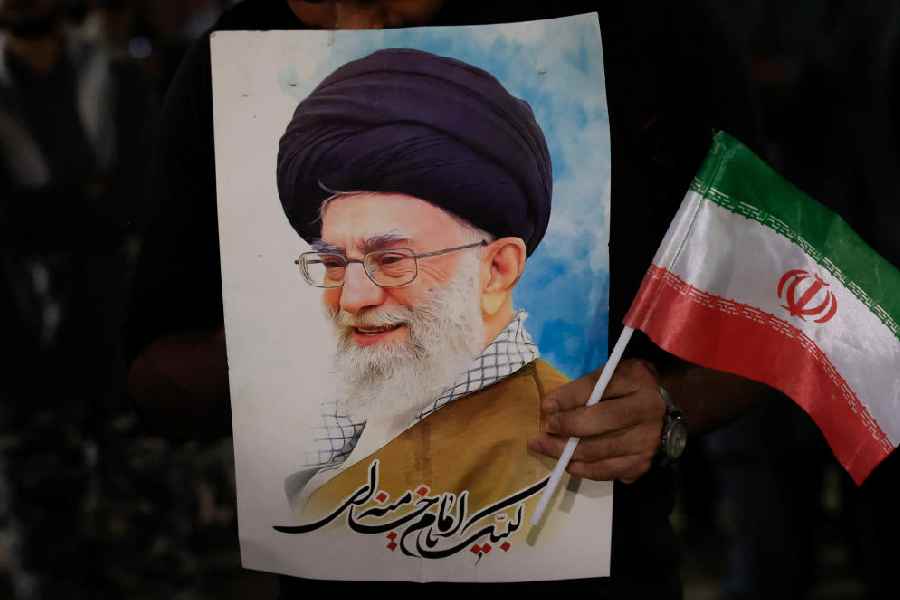 |
| Dixit?s wife lays a garland on her husband?s body. (PTI) |
New Delhi, Jan. 3: National security adviser J.N. Dixit, the chief negotiator in the boundary dispute talks with China and a key figure in the Pakistan peace process, had been fit enough last night to attend a party at a friend?s house.
At 6.30 this morning, he suffered a cardiac arrest and was taken to All India Institute of Medical Sciences where he was declared ?brought dead?.
Dixit, who was appointed to his post last May, would have turned 69 on January 8.
His funeral will be held on Wednesday. He has left behind his wife and two daughters.
?I have lost a close friend, a valued colleague and a great source of support and advice,? Prime Minister Manmohan Singh said. He rushed to Dixit?s house with UPA chairperson Sonia Gandhi after hearing of the death.
?The nation has lost a true patriot, a great diplomat and a wise strategist,? Singh said.
Political leaders, ministers, bureaucrats and diplomats thronged Dixit?s residence. A condolence meeting was held at South Block, attended by foreign minister Natwar Singh, foreign secretary Shyam Saran and many retired and serving diplomats.
Born in Madras in 1936, Dixit was known to friends and admirers as ?Mani?. He will be remembered for his ability to lead from the front and his clear views on foreign policy, which he rarely hesitated to air.
After joining the Indian Foreign Service in 1958, Dixit went on to become foreign secretary in 1991. In his long career, he served in several important posts in almost all neighbouring countries, including Sri Lanka, Pakistan and Bangladesh. He played a crucial role in shaping India?s foreign policy when bilateral relations with these neighbours were at a sensitive stage.
In the mid-1990s when he was India?s high commissioner in Islamabad, Pakistan President Zia-ul Haq asked him: ?Mr High Commissioner, why does India always send such short men to the neighbourhood??
Dixit replied without batting an eyelid: ?Mr President, India is aware of its geographical size and, therefore, it does not want to alarm its smaller neighbours unnecessarily.?
Dixit was high commissioner in Colombo at a time when India had to mend its relations with Sri Lanka. The accord between the two countries was signed during his time, after which Delhi sent peacekeepers to the strife-torn island. When this proved a mistake, Dixit came under fire.
He will be remembered as one of the greatest foreign secretaries the country has produced. Though he retired from the post in 1994, his performance has been a yardstick for his successors.
Dixit, who started his career in the IFS under Jawaharlal Nehru, served under several Prime Ministers, including Indira Gandhi, Rajiv Gandhi and P.V. Narasimha Rao. He had a rapport with each of them, earning their trust and confidence.


